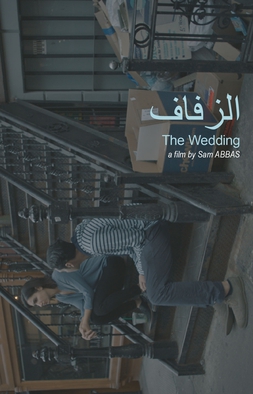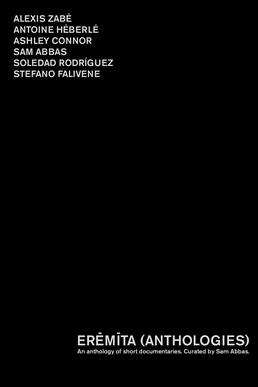A birthing center is a healthcare facility, staffed by nurse midwives, midwives and/or obstetricians, for mothers in labor, who may be assisted by doulas and coaches. The midwives monitor the labor, and well-being of the mother and the baby during birth. Doulas can assist the midwives and make the birth easier. Should additional medical assistance be required, the mother can be transferred to a hospital. This transfer is more likely if an epidural is needed, there is meconium staining, it is a prolonged labor, or the newborn needs intensive care. Some hospitals have birth centers as an alternative to the usual high tech maternity wards.
"New queer cinema" is a term first coined by the academic B. Ruby Rich in Sight & Sound magazine in 1992 to define and describe a movement in queer-themed independent filmmaking in the early 1990s.

Abbas Kiarostami was an Iranian film director, screenwriter, poet, photographer, and film producer. An active filmmaker from 1970, Kiarostami had been involved in the production of over forty films, including shorts and documentaries. Kiarostami attained critical acclaim for directing the Koker trilogy (1987–1994), Close-Up (1990), The Wind Will Carry Us (1999), and Taste of Cherry (1997), which was awarded the Palme d'Or at the Cannes Film Festival that year. In later works, Certified Copy (2010) and Like Someone in Love (2012), he filmed for the first time outside Iran: in Italy and Japan, respectively. His films Where Is the Friend's Home? (1987), Close-Up, and The Wind Will Carry Us were ranked among the 100 best foreign films in a 2018 critics' poll by BBC Culture. Close-Up was also ranked one of the 50 greatest movies of all time in the famous decennial Sight & Sound poll conducted in 2012.

South Korean films have been heavily influenced by such events and forces as the Korea under Japanese rule, the Korean War, government censorship, the business sector, globalization, and the democratization of South Korea.

The cinema of Yemen is relatively obscure, but it has seen glimpses of influence and representation throughout the years. Since the 1920s, when expeditions from Europe arrived in Yemen, the country has been featured in various documentaries and travelogues. These early films introduced audiences to the landscapes, architecture, and culture of Yemen, providing a window into a world they might not have otherwise experienced.

The cinema of Lebanon, according to film critic and historian Roy Armes, is the only other cinema in the Arabic-speaking region, beside Egypt's, that could amount to a national cinema. Cinema in Lebanon has been in existence since the 1920s, and the country has produced more than 500 films.
The modern South Korean LGBT rights movement arose in the 1990s, with several small organizations seeking to combat sexual orientation and gender identity discrimination.
Since the transition into the modern-day gay rights movement, homosexuality has appeared more frequently in American film and cinema.

The mass media in Qatar relays information and data in Qatar by means of television, radio, cinema, newspapers, magazines and the internet. Qatar has established itself as a leading regional figure in mass media over the past decade. Al Jazeera, a global news network which was established in 1996, has become the foundation of the media sector. The country uses media to brand itself and raise its international profile.
Thomas Waugh is a Canadian critic, lecturer, author, actor, and activist, best known for his extensive work on documentary film and eroticism in the history of LGBT cinema and art. A professor emeritus at Concordia University, he taught 41 years in the film studies program of the School of Cinema and held a research chair in documentary film and sexual representation. He was also the director of the Concordia HIV/AIDS Project, 1993-2017, a program providing a platform for research and conversations involving HIV/AIDS in the Montréal area.

Sam Abbas is an Egyptian film director, screenwriter, and producer. He is noted for his artfully composed, poetic, and incident-light tableaus film style.

The Wedding is a 2018 film directed by Sam Abbas and starring Nikohl Boosheri, Sam Abbas, Harry Aspinwall, James Penfold, and Hend Ayoub.

The COVID-19 pandemic had a negative effect on certain films in the early 2020s, mirroring its impacts across all arts sectors. Across the world, and to varying degrees, cinemas and movie theaters were closed, festivals were cancelled or postponed, and film releases were moved to future dates or delayed indefinitely. Due to cinemas and movie theaters closing, the global box office dropped by billions of dollars, streaming saw a significant increase in popularity, and the stock of film exhibitors dropped dramatically. Many blockbusters originally scheduled to be released by mid-March 2020 were postponed or canceled around the world, with film productions also being halted. This in turn created openings for independent cinema productions to receive wider exposure.

Maha Al-Saati is a Saudi Arabian female filmmaker, university assistant professor and graduate of Simon Fraser University who has taught both in Vancouver, Canada and Saudi Arabia. Her academic research covers the representation of architectural spaces, education through the use of film, and the influence of religion and culture on media. She is also an alum of the TIFF filmmaker lab 2020, TIFF Writers Studio 2021, and recipient of the TIFF Share Her Journey award 2020. She is of mixed Arab and Uzbek heritage.

Samantha Buck and Marie Schlingmann are film writers and directors who have made five films together. Buck is also an actress and has directed the documentary Best Kept Secret solo. They are best known for the 2019 film Sister Aimee.

Erēmīta (Anthologies) is an arthouse documentary anthology featuring short films composed during the 2020 COVID-19 pandemic. The anthology curated by Sam Abbas interweaves the literature of Friedrich Nietzsche.
Alina Khan is a Pakistani actress known for her lead roles in the short film Darling in 2019 and the feature film Joyland in 2022. She is the first transgender person to have a lead role in a major Pakistani film. In May 2023, she was crowned Miss Trans Pakistan 2023 in Lahore, Pakistan.

Chattel slavery existed in the Trucial States (1892–1971), which later formed the United Arab Emirates. The Trucial States consisted of the Sheikdoms Dubai, Abu Dhabi, Sharjah, Ajman, Umm Al Quwain, Fujairah, and Ras Al Khaimah. The region was mainly supplied with enslaved people from the Indian Ocean slave trade, but humans were also trafficked to the area from Hejaz, Oman and Persia. Slaves were used in the famous pearl fish industry and later in the oil industry, as well as sex slaves and domestic servants. Many members of the Afro-Arabian minority are descendants of the former slaves.












